Post
A catch
Save a catch to start your fishing logbook. You will be able to to share it with the community if yo want!
A fishing trip
Post an ad to go fishing with other fishermen
Save a catch to start your fishing logbook. You will be able to to share it with the community if yo want!
Post an ad to go fishing with other fishermen
Share a thought, a question with the community
My favorite cities
×Join our 729 fishermen and our 1 cofisherman in Great-Finborough in Suffolk. The fishing forecast is currently 4.7. The most caught fishes here are the grayling, the ide fish, the sunbleak fish and the eel fish. Come try the most famous fishing techniques like the how to catch smelt with square net?, fishing bream from a dock or jetty, tips for jig fishing or cast fishing material for mackerel fish or feeder fishing.
Our fishing forecast of Great Finborough indicates the best time to go fishing in this city.
The Grayling
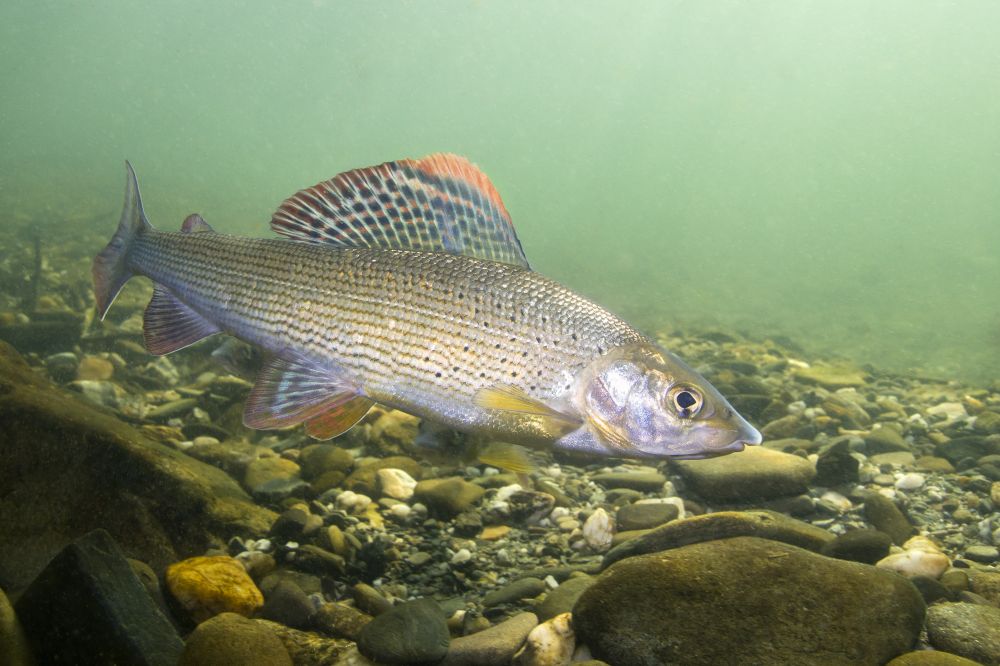
The Grayling belongs to the Salmonidae Family. The average size is 35 cm for 400 g (maximum 50 cm for 1.5 kg). Life expectancy can reach 5 years, rarely more. Breeding takes place in spring. The number of eggs laid depends on the size of the female and ranges from 600 to 8000 eggs. The fishery is open from June to December. The body, compressed laterally, is covered with large scales, some of which, pigmented, draw longitudinal streaks, highlighted with black spots. The head is small, the mouth opens downwards. The muzzle is thin, the eyes have forward pointing pupils and golden rings. The distinctive signal of the species is the long, high dorsal fin, supported by about 20 soft rays. The whole forms, over nearly a quarter of the length of the fish, an iridescent flag of violet to purple coloring, also called a vexille. The caudal peduncle is thin, surmounted by the adipose fin characteristic of Salmonids.
The Grayling is a famous fish you can catch in Great Finborough.The Ide fish
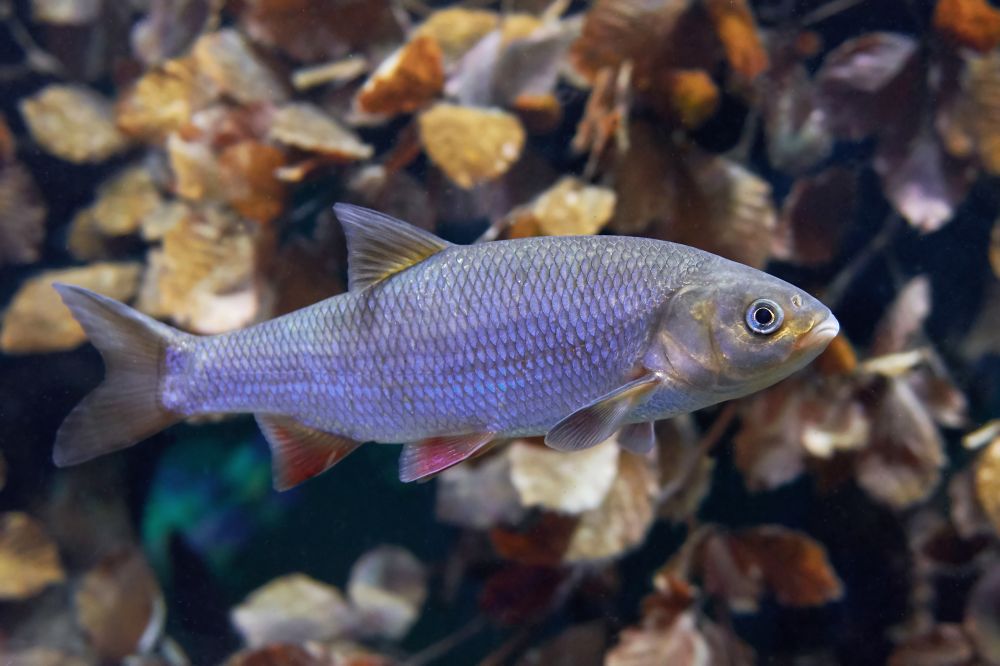
The Ide fish belongs to the Cyprinidae family. Its size is generally between 30 and 50 cm but this fish can reach a maximum length of 80 cm for a weight of 5 kg and an age of nearly 20 years. Spawning takes place from March to April. Females lay between 60,000 and 160,000 eggs. The fishery is open from June to March. The body is long and laterally compressed with a terminal mouth pointing upwards. The head is strong with a small mouth, obtuse snout and yellow eyes. The back is rounded. The anal fin has a concave rear edge. The back and upper part of the head are greyish-green to brown; the yellowish-brown flanks have silvery or golden reflections; the belly is whitish. The fins are dark except for the pelvic, ventral and anal fins which are frankly red. In older and larger specimens, the body color may turn yellow/bronze.
The Ide fish is a famous fish you can catch in Great Finborough.The Sunbleak fish
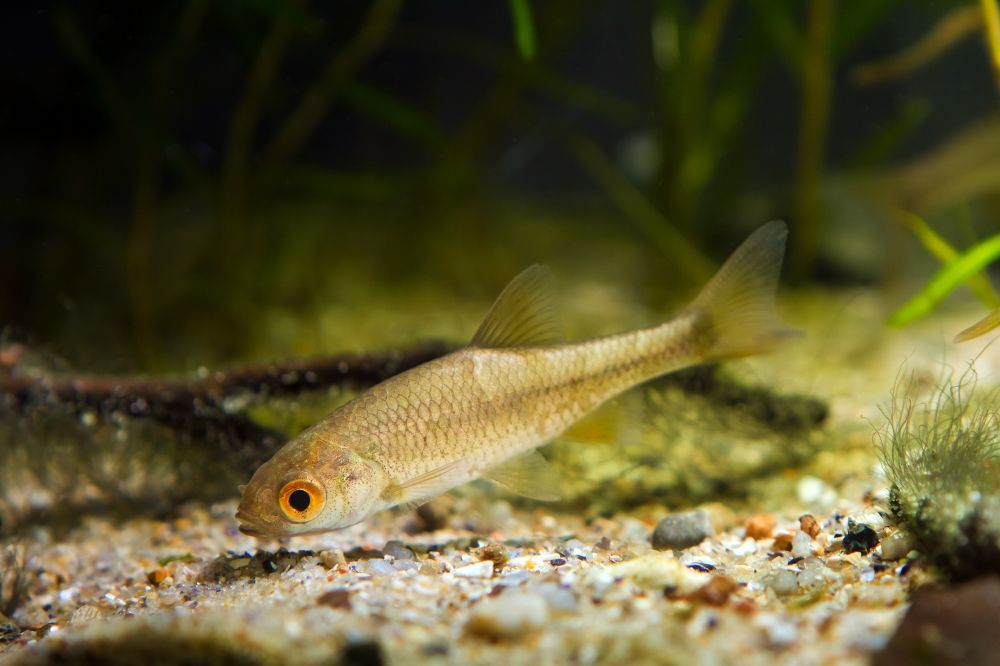
The Sunbleak fish belongs to the Cyprinidae family. The usual size of sunbleak is 4 to 6 cm for a weight of about ten grams. The largest individuals can reach 9 cm. Its lifespan is about 2 years. It breeds between May and July. It is prohibited to fish for the sunbleak in white water from October to March, but in mixed and calm waters it can be fished all year round. The Sunbleak has a tapered, laterally compressed body, like the common bleak with which it is often confused. However, its body is more robust and less high than that of the latter. Its head is small with eyes that are excessively large in relation to the size of the head. Its lower jaw is longer than its upper jaw, giving its mouth a forward and upward orientation, indicating a fish that feeds preferentially on the surface. The caudal fin of sunbleak is particularly indented, its dorsal fin fits well behind the pelvic fin insertions. The sunbleak has an olive-brown back, bluishly reflective sides and a silvery belly. Its fins are light grey.
The Sunbleak fish is a famous fish you can catch in Great Finborough.The Eel fish
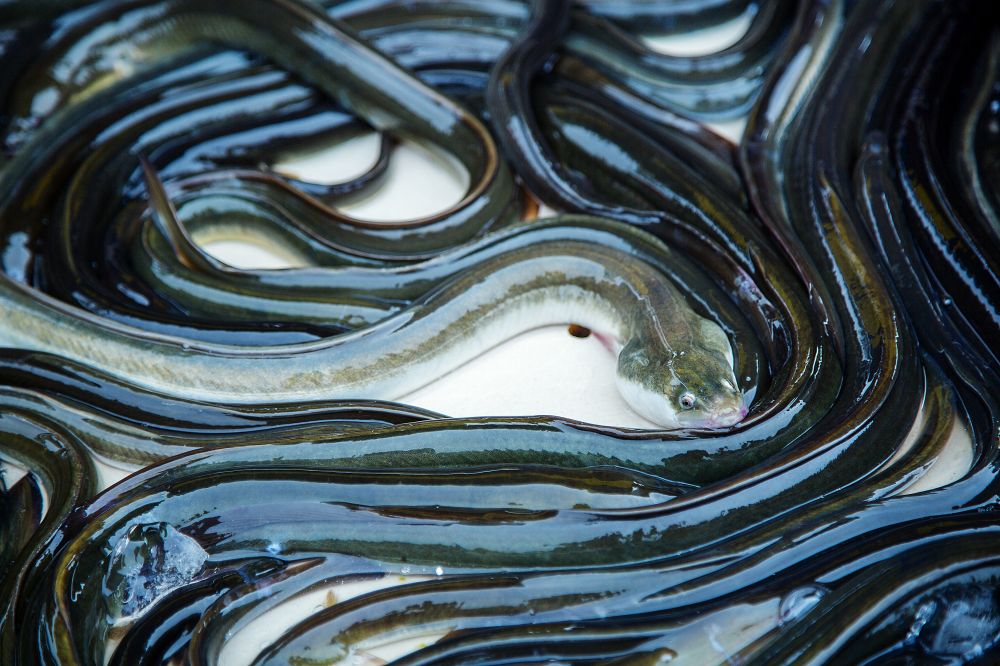
The Eel fish belongs to the Anguillidae family. The eel can measure up to 1.50 m in length for 4 kg, but the average size is between 40 and 60 cm. They can live up to 50 years old. They reproduce in March. They can be fished from April to September. The eel is a species of snake fish, hence its Latin name "anguis" which means snake. Its anterior part is circular while the caudal section is flattened. Its body is covered with smooth skin and enriched with mucus. The scales only appear late. The eyes of an eel are round. It has a terminal mouth with a prominent jaw. Without pelvic fins, the eel has only small pectoral fins and long dorsal, anal and caudal fins. These meet at the level of the tail.
The Eel fish is a famous fish you can catch in Great Finborough.The Salmon fish
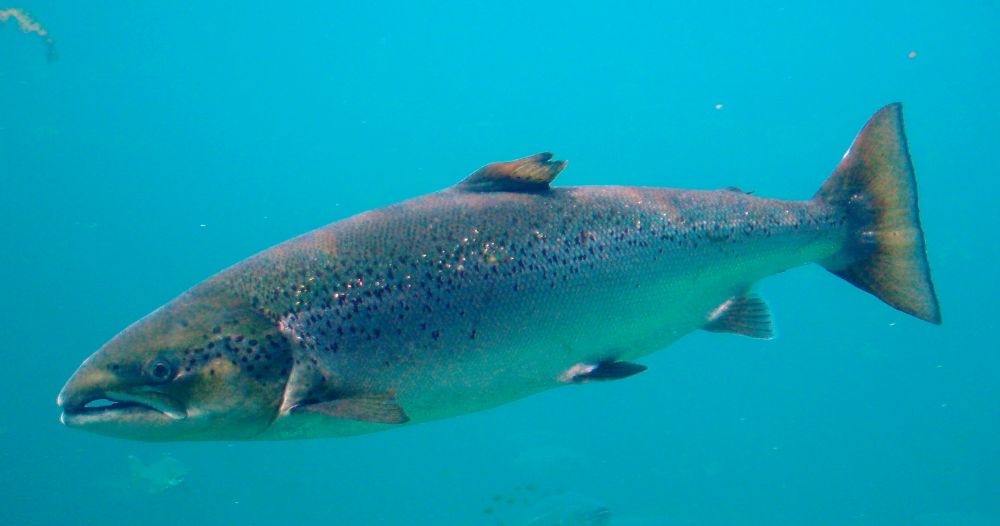
The Salmon fish belongs to the Salmonidae family. It can reach a maximum weight of 47 kg for a height of 1.5 m. The current size of the salmon is 50 to 70 cm, with a weight of 2.3 to 9.1 kg. It can reach a maximum weight of 47 kg for a height of 1.5 m. The current size of the salmon is 50 to 70 cm, with a weight of 2.3 to 9.1 kg. Spawning season is in October-November. Fertility is 1,500 and 1,800 eggs per kg of weight. It is fished in March in October. Salmon have a hydrodynamic and powerful body. The caudal peduncle is elongated and narrower than in trout, with which salmon share many characteristics. The mouth does not extend beyond the plumbing of the posterior edge of the eye. Adults have sexual dimorphism in the muzzle. Females have a rounded snout, while males have an elongated snout and their jaws bend sharply as they age, giving them the name of becard. The caudal fin is fairly indented, with a concave posterior edge and well defined tips. The adipose fin characteristic of Salmonids is present in salmon. The livery is different depending on the reproductive stage of the individual. The parr have 8 to 11 dark-colored vertical bars on the sides. The smolt and the adult have a silvery livery with black cross-shaped punctuation above the lateral line. At the time of reproduction, the male is adorned with bright colors.
The Salmon fish is a famous fish you can catch in Great Finborough.Our fishing forecast of Great Finborough indicates the best time to go fishing in this city.
Our fishing forecast of Great Finborough indicates the best time to go fishing in this city.
Our fishing forecast of Great Finborough indicates the best time to go fishing in this city.
